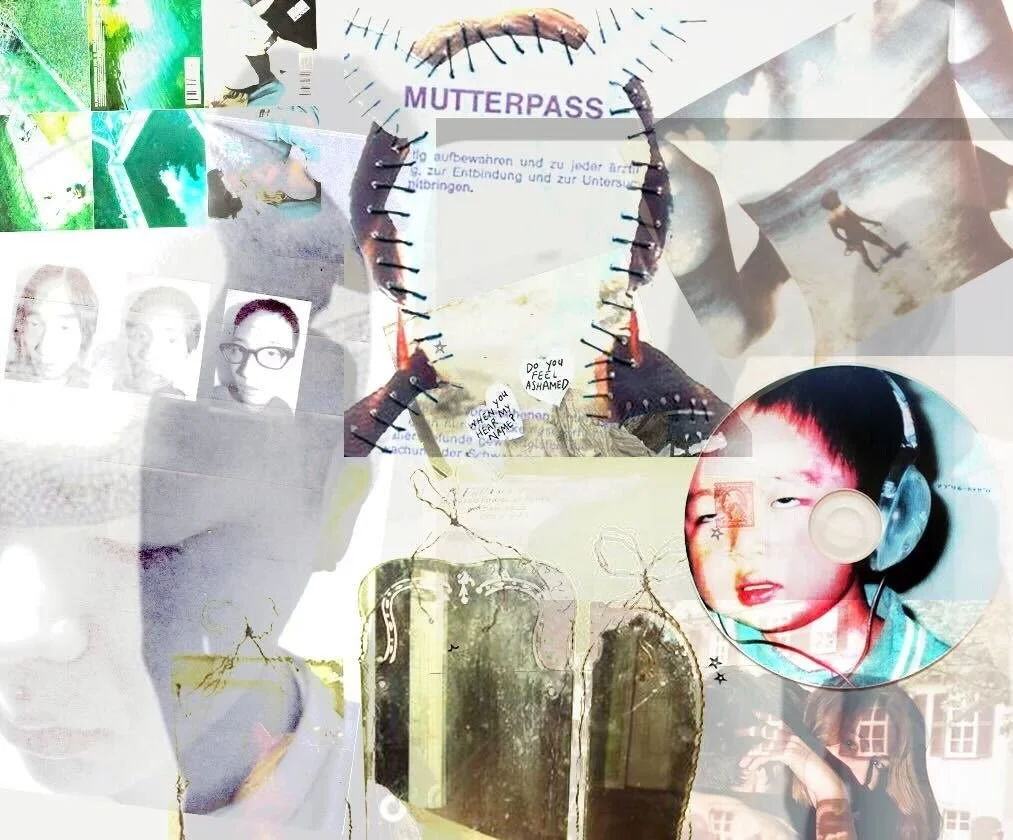I suddenly felt like I was peering into the broken window of an abandoned prairie home. One light flickered dimly in the foreground, yet there was no grounding – I was not at home in this reflection. I was consumed by my image.
I realized that my contention was with how I felt I had to show up as someone other than myself when entering a new setting. There was an intense urge to play the actor and fit the open role, no matter how restrictive it might have been. As time went on, the mirrors saw me in different roles, all reading from a different script, and all looking back with the same blue eyes. It wasn’t long before what the mirror saw became what I saw. In this shared gaze, my sense of self began to deteriorate. I realized I had begun a period of deep inward missing. Both my body and my soul were lost at sea– struggling to wade in the harsh ocean current.
It got to the point where looking into the mirror awakened a deep feeling of dissatisfaction and self-hatred, so I began to hide from them. I noticed that the mirrors would scratch at the itches which burned my skin, and the longer I looked the more I turned red. I ducked away from mirrors, and would shy away from photos. It was as though I was attempting to avoid eye-contact with a one-night stand from the year prior. When I would wash my hands in the bathroom I hastily lathered the soap around my fingers, attempting to distract myself from looking up and meeting my own eyes already there, already staring back at me. After about a month or so, these diverted gazes helped me stifle my need for them. I realized then how my lack of self image worked at reducing how important image was to me.
I will admit that I am still unable to stare at myself naked without some kind of judgment or criticism. I sat in bed late one night and contemplated: What within humanity drives the insatiable desire to know who we are – or what we look like? Would I still be able to recognize myself without looking in the mirror? We have mirrors in bathrooms of the establishments we enter, and small mirrors in the sun visors of our cars. We use these to constantly check, and impatiently upkeep, parts of ourselves that may mean nothing at all to the outside world. And yet, these small flickers of joy we get from recognizing ourselves through a mirror cannot compare to the rich complexities that linger deep within us, layers beneath our skin. The way our hair sits, or the direction our teeth veer, is only a distraction from the immutable aspects of our individual selves which cannot be duplicated or even represented by a glass filter.
When I look into a mirror, I am attempting to see what others see, and in doing so I am creating a bridge between my individual perception and that of society. The feeling of satiation that comes from grasping vanity may stem from my deep yearning to feel connected to something, to be near someone – to be close to my own self. I want to see myself so that I may understand myself from every angle, in all shades, and at all times of the day. When I am content in what I see, both inward and out, I feel connected to my being, if only briefly.
But in order to see myself clearly, I have to connect my image with the deeper parts of myself. I remind myself that the image in front of me, that which stares so deeply into my soul, is not a full depiction of who I am. The mirror can’t see my love for art, or my patience in conversations, nor can it see my benevolence, or my malice: the mirror will only see that which lays flaccid on the surface of my person, and this I have come to find is the most boring part about me.
With every mirror I gaze into, I muse on these ideas of identity, and how far I have come from vanity. I am not what others see, I tell myself, I am much more than that. I have found a great relief in not looking into the mirror, but I have found an even greater relief in the recents moments when I do look into my reflection, for I seem genuinely happy. I am no longer searching for a mode to settle into, nor a frame to fit – I am merely looking into myself at this very moment, in every shade. Part of me feels as though my vanity is dissolving, as though it is gently sliding off my body, and I can only begin to express this feeling as that of walking directly in the sun on a windless day. Even if I can’t see it in my reflection, I feel warm and joyous in the body I nourish. The fever of vanity has broken. War is over.
To break out of vanity is to destroy the paintings of the solely isolated creature from the wall, for we are much more than the way we present ourselves, or paint ourselves, to be. We are the small intricacies in thought, the evanescent emotions, teetering smiles, fluttering hearts. We are the deep caresses which only art can touch. In a universe of absent mirrors, and absent vanities, I am not an animal, or a character: I am an essence, and mirrors can’t refract that.
